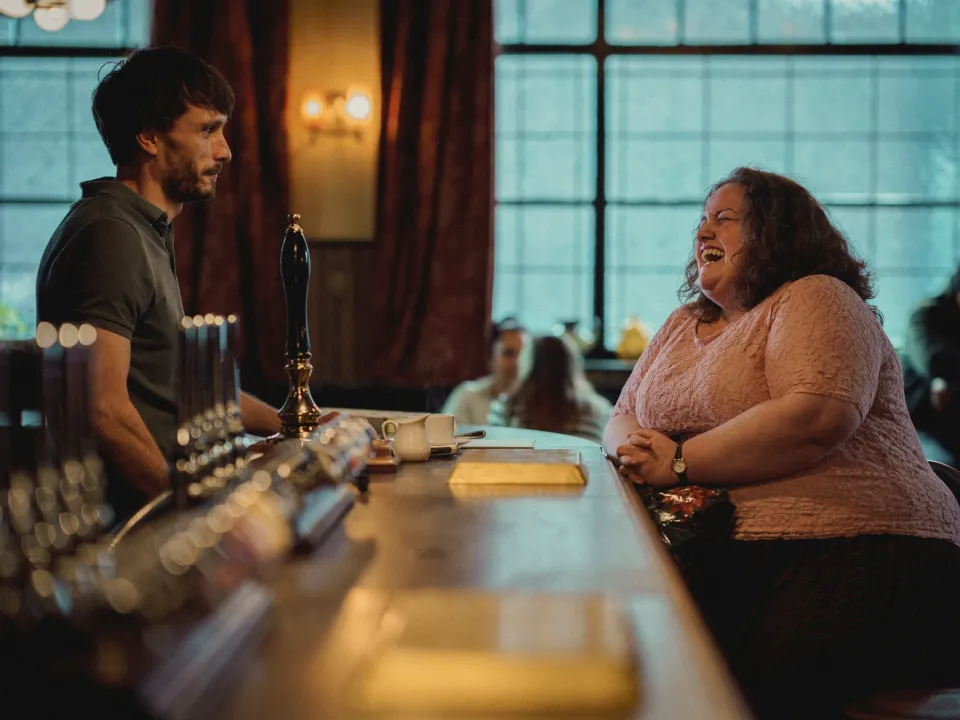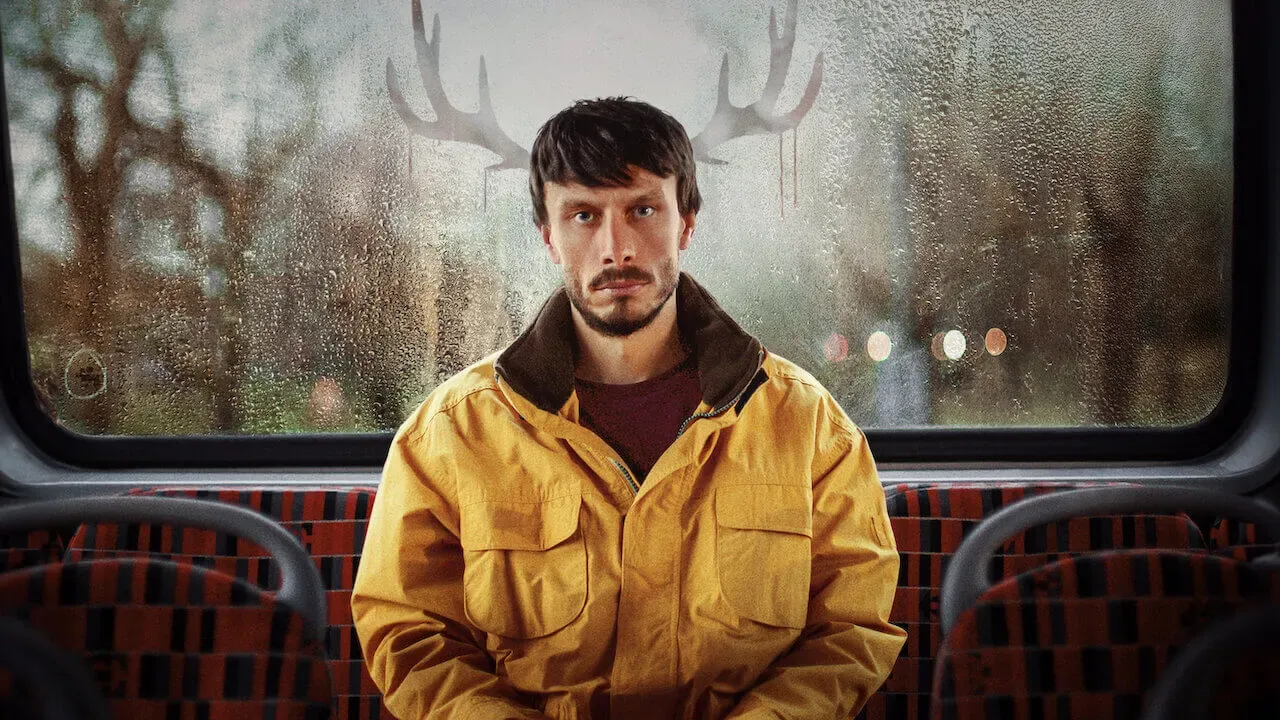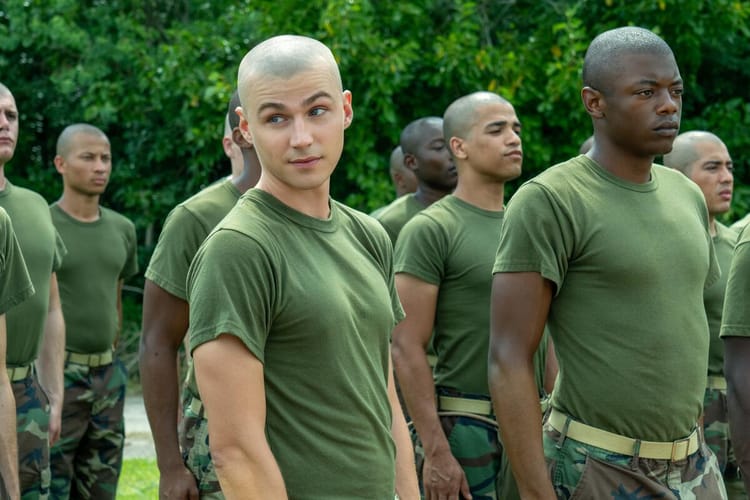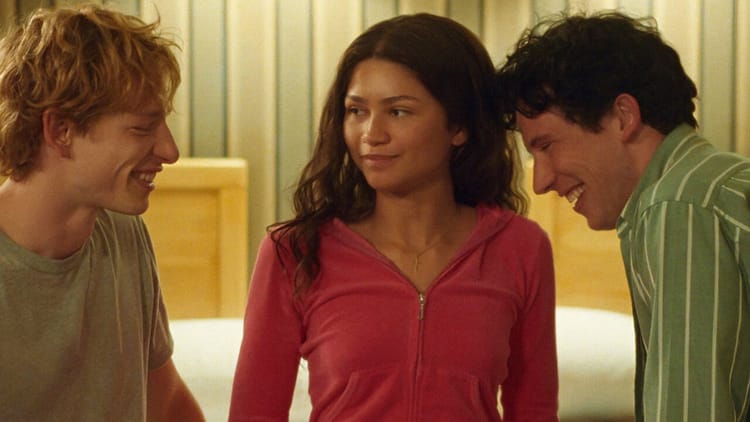On the Ethics of Baby Reindeer

A rumination on the storytelling ethics behind the most popular show on the planet.
I finished Baby Reindeer a few weeks ago. I thought it was pretty good, overall! It was an uncommon portrayal of abuse from a male point of view, with its creator-star Richard Gadd vivisecting his own history in a way that was always compelling and never comfortable.
For those unfamiliar with the most popular Netflix show on the planet right now (give or take Bridgerton dropping in the past 24 hours), the show is adapted from comedian Richard Gadd’s award-winning solo show of the same name. It plays out the comedian’s career through two threads: him being stalked by a woman he meets at his day job as a bartender, Martha, and his grooming and subsequent sexual assault by a television writer, Darren. All the while he is trying to make it as a stand-up, and try not to be a fuck up as a human being. It is dark, complicated, and harrowing.
The series received rave reviews, but the narrative has shifted over the past two weeks. Viewers quickly started to look for the real-life Martha and Darren. A prominent writer was accused of being the basis for Darren (which was swiftly denied by Gadd), while a woman who credibly claims to be the basis for Martha came forward for an hour-long interview on some show that professional loser Piers Morgan has on Youtube.
It’s a thorny situation. Gadd’s story, by any reasonable metric, is barely fictionalised. Gadd is a stand-up comedian. Gadd had a stalker who went to prison. Gadd was sexually assaulted by a man. Gadd also, mostly credibly, plays himself. The emails and texts that Martha sent (numbering in the tens of thousands) are based on those actually sent to him. While very few people knew who Gadd was before 2024, Netflix has Gadsby’d him into being a household name.
When Baby Reindeer was a solo show, Gadd had a level of control over the story. Fans of stand-up and theatre haven’t been poisoned by true crime in the same way that television viewers and podcast listeners have, likely because true crime does not lend itself well to either stand-up or theatre. Podcasts and streaming docos are too often the start of the story, rather than a complete package.
Baby Reindeer, for better or worse, sits alongside the likes of Tiger King and countless other "docos of the week" on Netflix. Realistically, someone who sees a show in Edinburgh that references a real life person probably isn’t going to post on Reddit trying to figure out who that real life person is. Someone on Netflix, with a glass of wine and an internet connection in hand, might be tempted to google “real-life Martha”. When your viewers number in the millions, there are going to be quite a few google searches.
I’m operating under the assumption that Gadd’s depiction of events is as close to reality as possible. I haven’t seen the Piers Morgan interview with the “real” Martha, due to a genuine distaste for Morgan and also for journalists exploiting a very likely mentally ill person (controversial). As we’ve learned from the discourse, he gains very little from not fictionalising it.
When I finished Baby Reindeer, even before this discourse, I had a range of questions
What story did Gadd want to tell?
What did he – and we as an audience – gain from telling this story?
What does he gain from not fictionalising that story more?
What does Gadd actually owe the real-life people in his story when telling his own?

It’s hard to look at Baby Reindeer and not think about my own practice as a writer.
I exist across a few artforms that rely on the labour of others. As a playwright, my work doesn’t come to fruition without the time and energy of other artists. As a journalist, my work doesn’t happen without other people’s stories. Most simply: as a critic, I need work to critique. Other people’s lives and labours are necessary for me to make a dollar. I’m not amazingly comfortable with that, and I’m unlikely to ever be.
Frankly, I also don’t think anybody who works in these forms should ever be entirely comfortable with those relationships. This is not a popular take. I remember reviewing Black Hands – the series that fictionalised the Bain murders – and having more than a few conversations with people who took umbrage with me questioning why those writers felt the right to tell the story of other people’s pain. Nobody gave me satisfactory answers, falling back on fallacies of "public interest" and "our stories".
The reality, though? The makers of that series got paid. We know what happened to the subjects.
In my early days, my plays barely fictionalised real life events. Some of those events I have (perhaps dubious) ownership over, others I absolutely don’t. One of those plays remains one of my most popular, performed, published and republished. That I’ve made more than a few dollars from fictionalising somebody else’s story doesn’t feel great. But that play exists on very specific platforms – literally stages – and without the audience having explicit knowledge that words and events similar to those depicted happened to real people they will likely never meet or know. That’s a blessing, and a privilege, for me.
Baby Reindeer doesn’t have that same privilege. Everybody knows that it happened. Gadd went through this – or some version of it. There is a real Martha walking around (and a real Darren, probably less like to come forward). When I finished it, I wondered what exactly we gained from the real-life Martha being so close to the actual Martha. It is telling that nearly everybody could point this Martha out in a line-up, thanks to deeply specific styling and a brilliant performance from Jessica Gunning, whereas Gadd's "Donny" remains fairly anonymous.
Truth can be attained by fictionalising reality. Does Baby Reindeer's Martha need to be a lawyer? Does she need to be white? Does she need to have sent those specific emails? If an audience believes it to be true, isn’t that enough?
Finally, does Gadd owe literally a single fucking thing to people who purportedly ruined his life?
I don’t have answers for any of my questions. I don’t know Gadd at all, beyond this show and the presumably fictional episodes of Sex Education he is credited for writing. He also doesn't owe me any answers.
Each and every writer has a deeply personal relationship to their truth. Fiction and non-fiction are merely genres, not measurements of authenticity. Some pieces of fiction I’ve written are truer to my soul than any piece of journalism I’ve written. Meanwhile, some pieces of journalism could not be hurled further away from my truth. Criticism? Criticism exists somewhere between the two. I’ve often been nicer in print than in private, but also sharpened knives for special occasions.
I sit here, weeks after finishing the show, swiping past memes of the real-life Martha on various social platforms, wondering what the cost is for people caught in the crosshairs of artists telling their truth. It’s not a question of deserving it, of canonising heroes and villains. It’s a question of who gets to tell whose story. Of who should be telling stories.
Artists get to. They have their art.
Audiences do too. They have their responses, their reactions and their conversations.
Subjects? Not so much.
Writing and reporting takes time, and if you want to support the amount of time it takes (and ensure that the scant amount of meaningful coverage of local art can continue), please considering supporting Dramatic Pause with a paid subscription ($8 p/m, $60 p/a) and if you can't afford a paid subscription, please share the work with your networks!



Member discussion